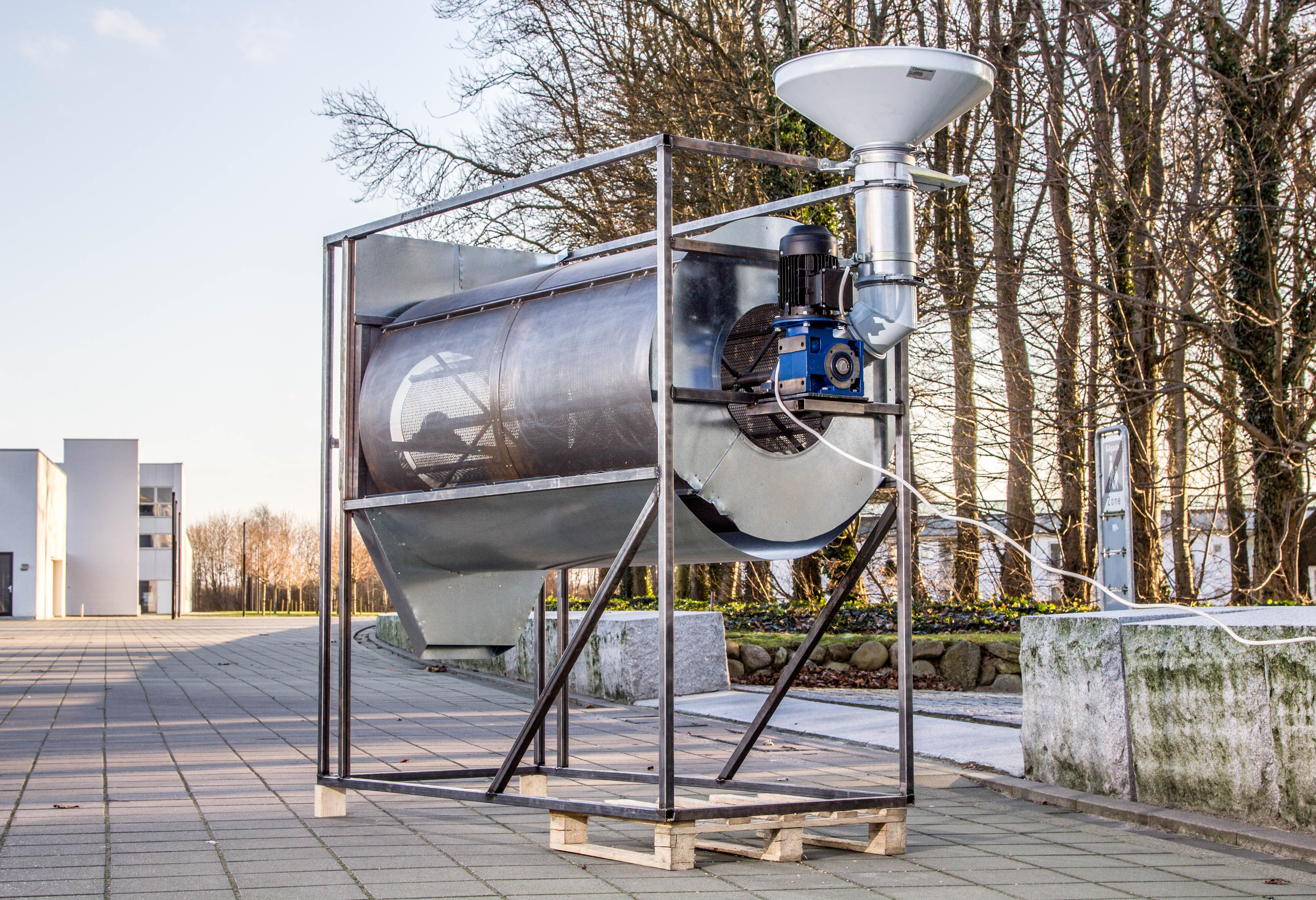Students develop revolutionary agricultural grain cleaner
A group of students from the Department of Business Development and Technology at Aarhus BSS in Herning have developed a grain cleaner which cleans up to 40 tonnes of grain per hour. The largest grain cleaner currently on the Danish market only cleans 13.5 tonnes per hour.

Six engineering students on the Business Development Engineer programme have created the largest ever grain cleaner for the Danish machinery manufacturer, Øgendahl’s Maskinfabrik, in Lemvig.
The grain cleaner is well thought-through on several levels. Not only is it attachable to the standardised piping systems currently used in the agricultural sector, it also fits into a 20-foot container so that it can easily be shipped abroad. The cleaner is also cheap and easy to produce with a cost price likely to be significantly lower than existing competitor prices. The price of the material used to produce the cleaner is estimated at DKK 30,000 with current grain cleaners costing around DKK 110,000. Finally, the grain cleaner also allows for a quick and easy replacement of the perforated metal sheets, which serve to remove any impurities, if the farmer wants to clean another variety of grain.
“Small growers find it difficult to compete with their large counterparts, and with this grain cleaner even small growers can handle large amounts of grain. Financially, this will mean a great deal to the individual farmers,” says Lars W. Falk-Petersen, one of the six students behind the grain cleaner.
Unlike anything on the market
In agriculture, a distinction is made between effectively cleaned grain which contains almost no impurities, and pre-cleaned grain which has been cleaned more superficially. The new grain cleaner can be set to both pre-clean and clean the grain effectively, according to the specific needs of the farmer.
“Competing cleaners pre-clean the grain, so even though they might clean up to 80 tonnes, a lot of the grain just go through the machine and is not cleaned effectively. If this grain cleaner is put into production, it will be the largest and most effective grain cleaner on the Danish market,” adds Martin Lønsmann, a member of the project group.
Cleaning the grain is important
Grain cleaners are used to filter out impurities from grain such as stones, pebbles, sand and dust after the grain has been ejected from the combine harvester. Cleaning the grain is important as it reduces the level of toxin in the grain, the wear and tear of the mill/mechanical feeding systems and the gastrointestinal symptoms in pigs when the grain is used as pig feed. It also affects the drying of the grain, as the price of this is calculated per square meter and is thus more expensive if the grain is not cleaned.
Øgendahl’s Maskinfabrik has manufactured grain cleaners for many years. The largest machine which filters out all impurities cleans up to five tonnes of grain per hour, while the largest machine on the market cleans up to 13.5 tonnes per hour. The company wished to produce a grain cleaner which could clean up to 40 tonnes per hour, and this is where the students entered the picture.
Facts
The cleaning technology behind the grain cleaner is the so-called two-screened drum cleaner which allows for filtering out all particles of various sizes from the most common types of grain.
Further information
The project group consists of:
· Martin Lønsmann
· Lars W. Falk-Petersen
· Anders Jørgensen
· Thomas Valbjørn
· Nickolaj Berthelsen
· Thomas Bjerre Bojsen
Contact person:
Thomas Bjerre Bojsen
Tel: 27 65 85 05
Email: Thomas@bjerrebojsen.dk
Alternative contact person
Thomas Valbjørn
Tel: 26798157
Mail: thomas@valbjorn.net